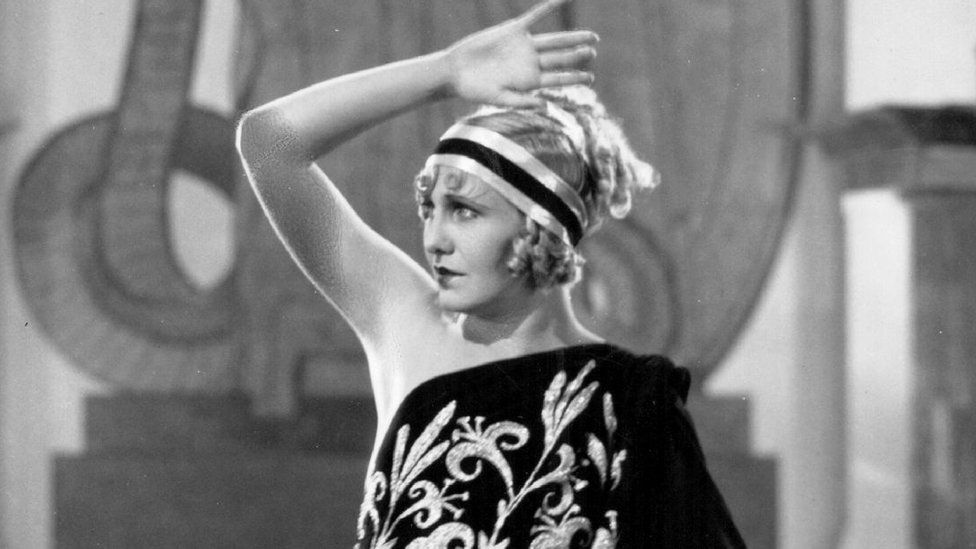Smile, you're on camera, and it knows who you are
- Published

Helen of Troy may have had a "face that launch'd a thousand ships", according to Christopher Marlowe, but these days her visage could launch a lot more besides.
She could open her bank account with it, authorise online payments, pass through airport security, or raise alarm bells as a potential troublemaker when entering a city (Troy perhaps?).
This is because facial recognition technology has evolved at breakneck speed, with consequences that could be benign or altogether more sinister, depending on your point of view.
High-definition cameras combined with clever software capable of measuring the scores of "nodal points" on our faces - the distance between the eyes, the length and width of the nose, for example - are now being combined with machine learning that makes the most of ever-enlarging image databases.
Applications of the tech are popping up all round the world.
In China, for example, fried chicken franchise KFC recently unveiled its first "smart restaurant" that uses facial recognition to predict what meal customers are likely to want, based on their age, gender and the time of day, while payments giant Alipay is experimenting with "smile to pay" tech.
In the US, medical technology company NextGate has developed facial recognition that can identify patients and link them to their medical records.
In Israel, meanwhile, "facial profiling" firm Faception even claims its technology can tell if you're a terrorist, extrovert, paedophile, genius or professional poker player by analysing 15 details of your face that are invisible to the naked eye.
It then uses the information to determine your personality traits, with the firm claiming it has an 80% accuracy rate.
And Russian app FindFace lets you match a photograph you've taken of someone to their social media profile on the country's popular social media platform Vkontakte. In theory, you could track down a complete stranger you snapped on the bus or train.
"There are many potential applications of robust and reliable facial recognition technology," says Prof Josef Kittler from the Centre for Vision, Speech and Signal Processing at the University of Surrey in the UK.
"Uses include security and surveillance of business, identity verification for business transactions, personalised treatment of regular customers, and analysing a customer's reaction to displays for marketing purposes."
The university is currently heading a £6m ($7.5m) collaborative research programme funded by the Engineering and Physical Sciences Research Council to develop next-generation facial recognition technology.
If the face fits
One of the principal drivers of the tech is the security sector.
Carl Gohringer, founder and director at Allevate, a facial recognition firm that works with law enforcement, intelligence and government agencies, says: "The amount of media - such as videos and photos - available to us as individuals, organisations and businesses, and to intelligence and law enforcement agencies, is staggering.
"We're well beyond the point where all of it is usable or viewable by us as human beings. So technology will be applied that results in new and interesting mechanisms of accessing, analysing, ordering, structuring and processing this visual minefield."
Machine-learning algorithms can sift through this vast store of data and improve as they go. Tools such as FaceSearch, from Vigilant Solutions, analyse more than 350 aspects of the human face, enabling suspects to be matched to a cloud-based database of more than 15 million "mugshots".
But Roger Rodriguez, director of public safety business development at Vigilant Solutions, says this technology has plenty of business applications too.
"Want to cater to those high-spending VIPs when they enter your store?" he says. "Facial recognition technology can send instant alerts when that VIP enters.
"Or it could be used on cruise ships to check passengers back in after they've disembarked the ship for a land excursion."
Businesses looking for a competitive edge see the technology as a "game-changer", he says.
Privacy backlash
But what price privacy?
A report by Georgetown Law Center for Privacy and Technology estimates that about half of US adults - more than 117 million people - have their images logged in a facial recognition network of some kind - a trend civil liberties group the Electronic Frontier Foundation describes as "a real and immediate threat" to privacy.
And authorities seem keener than ever to use the tech, citing security and law enforcement as the main reasons. It was recently revealed that the city of New York plans to install facial recognition tech on its bridges and tunnels to scan and identify people driving in and out.
In the European Union, such technology has to comply with the EU's Data Protection Directive and, from May next year, the General Data Protection Regulation.
But Ruth Boardman, data privacy specialist at international law firm Bird & Bird, says individual rights still vary from one EU state to another.
And the automation of security vetting decisions based on facial recognition tech raises serious privacy issues.
"In some countries this is not permitted at present," she says. "In others, like the UK this is permitted, as long as appropriate safeguards are in place - for example, ensuring that anyone who believes this is in error can ask for the decision to be reviewed."
Reassuring perhaps, but little comfort if you find yourself barred from a venue because some facial recognition software has mistaken you for a modern-day Al Capone.